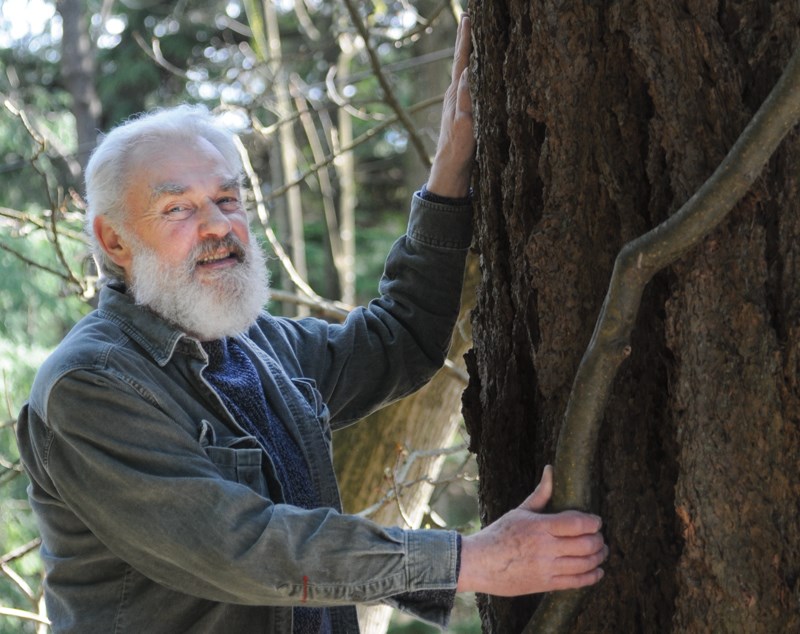At Maplewood Conservation Area, the goldfinches fly and rest and flicker about their daily rounds, undeterred by the driving rain, oblivious to observation.
Inside Corrigan Nature House, separated from the birds and rain by a sheet of glass, naturalist Kevin Bell recalls the dawn of his interest in the wild world.
“As a boy, my curiosity about birds and their behavior led me to study natural history. The birds motivated me to learn about the environment, an unknown word back in my childhood. They helped me recognize the interdependence of species and of our environment.”
Bell acquired the birding bug from a set of cigarette cards his mother collected in the 1930s. “I made lists of the birds I spotted, matching them to the cigarette cards so, of course, recorded many birds that were never in Ireland.
The birds came for the food scraps ... and maybe a bone would be strung up in a tree for them, no pre-made suet cakes in those days.”
The naturalist in Kevin began to emerge in his job with a timber company in Belfast, his hometown. “The company where I worked, Lyttle and Pollock, imported timber, and the biggest came from British Columbia. I wanted to see those trees in their natural setting.”
The future for young men in Ireland in those days, whether in the Republic or in Ulster, Protestant or Catholic, was dim. The burgeoning civil rights and nuclear disarmament movements were attracting the attention of the authorities. Political and religious strife that would usher in three decades of ‘the Troubles’ was heating up.
Kevin decided to make a life for himself in Canada. He would observe the big trees in their natural habitat, and the birds and wildlife that lived among them. In 1967, Kevin set off across an ocean and a continent on his way to a new life in a new world destination: Nelson, B.C.
In Nelson, deep in the temporal rainforest, big trees and birds were plentiful, but the mill where Kevin worked went on strike and the young Irishman was advised to try his luck on the coast. A fellow Ulsterman hired him to work at Tahsis, on Vancouver Island’s west coast.
Kevin would return to Tahsis to work while he completed his education at Simon Fraser University and at what was then Capilano College in outdoor education.
The time was right for a budding naturalist. The first Earth Day, April 22, 1970, brought the environmental movement into the mainstream. Words like ecology and ecosystem entered the lexicon. The District of North Vancouver was on board with environmentalism too. “I trained as a parks naturalist, and as luck would have it, they needed someone like me at the Lynn Canyon Ecology Centre.” Kevin worked with Dirk Oostindie, the innovative and progressive parks manager responsible for establishing much of the district’s parks system.
During his 25 years with the district, Kevin rose to manager of the Ecology Centre and manager of natural parkland. Along the way, he volunteered with the Vancouver Natural History Society, now Nature Vancouver, and Western Canada Wilderness Committee. A forest was planted in Murdo Fraser Park by North Shore stewardship organizations in recognition of Kevin’s contribution to ecology in North Vancouver.
Like so many people with a vocation, Kevin, now a full time volunteer, is as active as when he was working. Most days he can be found at the Maplewood Conservation Area. He leads walking tours, talking about birds and natural history. He works with Dirk Oostindie’s son, Irwin, on the Wild Birds Trust and is readying the plant nursery, mostly native varieties, for its opening sale on Saturday, May 6.
At Maplewood, and everywhere, the birds fly and rest and flicker about their daily rounds, oblivious to observers, and to their own vulnerability. Oblivious also to Earth Day, coming up on Saturday, April 22. It is the job of humans, as stewards of the earth, to recognize Earth Day. Kevin Bell will mark the day by doing what he loves: walking in the forest, observing the birds going about their lives.



